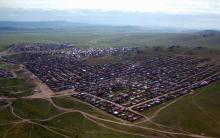Continuation of the lecture on topic 3. Insurance market
Characteristics of insurance organizations.
Insurers can be classified according to the following criteria:
· By affiliation there are: joint stock, captive, mutual, state and municipal, private insurance organizations;
· By specialization: life insurers, universal, specialized, reinsurance companies;
· By area of activity: local, regional, national and transnational;
· According to the characteristics of the clientele: market and captive companies;
· According to the characteristics of the place of registration: regular and offshore.
Currently, the creation of insurance organizations in Russia is possible in various organizational and legal forms: in the form of business partnerships and societies, production cooperatives, state and municipal unitary enterprises And non-profit organizations. In Russia, the predominant part of insurance organizations are created in the form of LLC, which contradicts world practice, where insurers are created mainly in the form joint stock companies. And this is no coincidence, because successfully conducting insurance activities and ensuring the financial stability of an insurance organization requires large capital. Exactly shareholder form organizing an insurance business allows founders with small own funds through the issue and placement of shares to form authorized capital required size. In the European insurance market, unlike Russia, organizational and legal forms intended for small and medium-sized businesses (LLC) are generally excluded (prohibited). The joint stock form also allows you to create a full-fledged holding corporate structure, which is especially important for insurance organizations developing regional network. Joint-stock insurers, participating in the capital of other insurance organizations, can create a group of subsidiaries and dependent divisions (insurance group).
Peculiarity captive insurance companies in that they serve entirely or predominantly the corporate insurance interests of the founders, as well as independently operating entities that are part of the structure of a diversified concern or financial-industrial group. The advantages of organizing a captive are the large potential capacity of a large segment insurance market, which is serviced by a corporate insurer. Penetration of competing insurance companies into this segment is difficult or impossible. The purpose of creating your own insurance company is, on the one hand, the desire to obtain comprehensive insurance protection at an affordable price, and on the other hand, the desire to diversify the main business. In the USA, the creation of an insurance company is considered profitable if the potential annual collection of premiums of such a company is estimated at no less than $1 million. For effective sustainable operation of a captive insurer, it is necessary 1) active reinsurance of accepted risks, 2) attraction of client-insurers from outside, otherwise the effect of insurance itself – “redistribution of damage” – will not be realized. In Russia, despite the fact that some large initially captive companies have now become open, market-based, the captive insurance segment remains very impressive.
State and municipal insurance companies usually operate in the form of joint stock companies, where 100% or a smaller part of the capital belongs to the state or municipal authorities. This allows for maximum commercial independence and frees the state from direct liability for the insurer’s obligations. The creation of state insurance companies is a form of government intervention in the activities of the insurance market. Typically, these companies provide insurance for risks that commercial insurers refuse to cover, but for which coverage is of national importance. IN developed countries state insurers provide protection against particularly dangerous or specific risks, such as political, military, financial, and also specialize in insuring state and municipal property and civil servants. IN developing countries state insurance and reinsurance companies are created with the aim of preventing currency leakage through insurance and reinsurance channels (at the same time a state monopoly is introduced on certain insurance operations or for reinsurance).
Former largest state insurance company Russia - Rosgosstrakh is a joint-stock company, the entire stake of which until 2001 belonged to the state. In the summer of 2001, it was announced that 50% of the shares of Rosgosstrakh were being put up for sale. Currently, the state owns only 25% of the shares of OJSC RGS. Rosgosstrakh is the legal successor property rights and duties of the State Insurance Board of the Russian Federation. And therefore, it has the most extensive branch network, extensive experience in the field of personal, property (including agricultural) insurance, as well as the responsibility for restoring savings under 55 million life insurance contracts in the amount of 29 billion rubles. as of 01/01/92.
By right, only the Yugoria insurance company, registered in Khanty-Mansiysk, can be called a state insurance organization in Russia.
Creation non-profit insurance organizations usually occurs in the form mutual insurance companies(OVS) and aims not to make a profit, but only to provide members (participants) of the OVS with insurance protection. Participants in the OBC are united by the presence of homogeneous risks and the desire to provide protection against them. Each member of the company becomes an insured, his share in the insurance fund is determined by the size of the contributed share, and the entire OVS team acts as an insurer. The advantages of mutual insurance are obvious:
1. Maximum consideration of the needs of policyholders - members of the OVS. It is possible to cover even those risks that commercial insurers do not accept.
2. Savings on insurance protection, ensured by several factors. Firstly, the non-profit nature of the activity makes it possible to significantly reduce the cost of insurance coverage (carry it out at cost). Secondly, the need for insurance intermediaries disappears (saving on commissions to agents and brokers). Thirdly, in most countries, a preferential tax regime has been established for OBC.
3. “Your own” mutual insurance company usually evokes more trust.
The mentioned advantages of mutual insurance lead to its great popularity in foreign countries. In the world's largest insurance markets, mutual insurance operations account for about 42% of the total insurance volume. The overwhelming majority of mutual insurance companies are engaged in life insurance and other types of personal insurance. A smaller part operates in the field of fire, agricultural, and automobile insurance. OBC has gained particular popularity among shipowners and motor carriers, and currently 95% of shipowners insure liability risks in Mutual Insurance Clubs.
Unfortunately, mutual insurance societies have not yet become widespread in Russia, and the main reason for this lies in the fact that legal basis activities of the OVS was created only in November 2007 with the adoption of the relevant law. According to the law on mutual insurance, OVS must specialize in only one type of insurance related to property (it is prohibited for individuals to engage in it). In the Russian Federation, the number of members of the OVS of individuals can be from 5 to 2000, and of legal entities - from 3 to 500. Members of the OVS - policyholders must pay both insurance premiums (preliminary insurance premiums), as well as additional insurance premiums, in the event that the collected insurance premiums are not sufficient to cover all payments for insured events.
To obtain additional benefits, mutual insurers and captive insurance companies are sometimes registered in an offshore jurisdiction. Offshore insurance dates back to the 40s of the 20th century, when the American insurance corporation AIG opened its branches in Bermuda. Now in the world there are about 40 offshore companies developing the insurance business (Bermuda, Seychelles, Cayman Islands, Cyprus, Labrador, Barbodos, Isle of Man, Labuan, etc.), where at least 5 thousand offshore insurance companies are registered. Offshore insurance can be defined as the implementation of insurance and reinsurance operations with non-resident policyholders of the country of registration of the offshore insurer for risks outside the country of registration in foreign currencies. Advantages of registering an insurance company offshore: 1) tax savings (no income tax, turnover taxes..); 2) simplified procedures for registration and ongoing supervision; 3) confidentiality of information.
Associations of insurers are created on a voluntary basis to coordinate their activities, protect the interests of their members and implement joint programs. In most countries, there are self-regulatory organizations that protect the interests of participants in the insurance market, and also establish and control certain rules and principles of their behavior. For example, the All-Russian Union of Insurers operates in Russia.
A special form of association of insurers is insurance pool. A pool (English pool – boiler) is a form of temporary association of independent companies for joint insurance of certain risks on the basis of joint liability. The principle of joint liability means that the policyholder, having in hand an insurance policy issued on behalf of the insurance pool, upon the occurrence insured event may demand payment from any insurer that is a member of this pool. The functioning of insurance pools makes it possible to accept large risks for insurance, the sole bearing of which is beyond the power of even the most large companies, ensures the financial stability of insurance operations, guarantees clients the fulfillment of obligations.
6. In conditions of low demand for voluntary insurance great value in the sale of insurance services have active sales channels, in particular insurance intermediaries, which are of two types.
Insurance agents - physical or legal entities acting on behalf of the insurer and on his behalf in accordance with the powers granted. An insurance agent performs the following main functions:
· searching for policyholders to conclude insurance contracts on behalf of the insurer;
· explaining insurance conditions to policyholders, assisting them in choosing optimal option concluding an insurance contract that allows for maximum insurance protection given the existing financial capabilities of the policyholder to pay the insurance premium to the insurer;
· coordination with the insurer of the issues of accepting for insurance risks with significant volumes of insurance liability and regulation of tariffs;
· receipt of an insurance premium from policyholders (within established limits) and transfer (transfer) of it to the insurer;
· advising policyholders after concluding insurance contracts and facilitating the fulfillment of the terms of each contract (this function of insurance agents is performed in developed insurance markets, but is often absent in Russia).
An insurance agent can also act on behalf of several insurers.
An insurance agent is usually a freelance employee, acting on the basis of an agency agreement and receiving remuneration in the form of a commission as a percentage of the collected insurance premium (5-20%, at credit insurance the commission reaches up to 40%). The staff consists of only the most qualified agents, they receive a stable salary and interest. Nowadays, agents are often called insurance consultants (mainly life insurance). Many companies use, along with the traditional agent network (when each agent is associated with the company), a pyramidal one agent network, in which all the functions of network formation are transferred to the general agent and he forms two or three levels of sales under him. Commission distributed across all levels, but the general agent usually receives the most, since all concluded contracts ultimately go through him. Such a network is characterized by risks: 1) persons hired as subagents may be incompetent in this area and the contracts will bring losses, 2) the company may lose this entire pyramidal network if the general agent is lured to work for another company.
Insurance agents – Yu.L. - these are usually enterprises that are not directly related to the insurance business, but have a clientele with certain insurance needs, which allows them to act as agents of the insurer. For example, these are travel agencies, service stations, car dealerships, supermarkets, post offices, etc. Since the 60s, the direction of banksurance - insurance carried out by banks - began to develop in Europe. In many European countries, 60-80% of sales of life insurance policies now come from banks.
Insurance brokers - are they legal or individuals registered in the prescribed manner as entrepreneurs and carrying out insurance intermediary activities on their own behalf on the basis of instructions from the policyholder.
An insurance broker acts on the insurance market on its own behalf, providing intermediary services to policyholders (or insurers in the case of reinsurance) on the basis of contracts concluded with them for a certain fee. The broker is not a party to the insurance contract. His duty is to find an insured interested in insuring the risk, to offer his services in preparing the most profitable option concluding an insurance contract with a reliable insurer. The broker is obliged to provide the insurer with reliable and complete information about the policyholder, the subject of insurance, the probability of occurrence of insured events, possible losses and other information of interest to the insurer. After concluding an insurance contract, the broker can advise the policyholder on the implementation of the insurance contract, including payment of the insurance premium (contributions) and receipt of insurance payments, if this is provided for in the agreement between the broker and the policyholder.
Insurers often use the services of survey firms before accepting certain items for insurance. material assets(buildings, structures, equipment, vehicles, cargo, etc.). The surveyor evaluates the availability of property according to the policyholder's inventory, its condition, ownership, storage or transportation conditions, the quality of cargo packaging, the likelihood of an insured event and possible damage.
World insurance practice created another type of intermediary that performs special functions of investigating claims (demands) of policyholders on behalf of insurers, recognizing (or not recognizing) events as insured events, assessing their consequences (damage), and drawing up an emergency certificate. Such intermediaries are adjusters (emergency commissioners).
7. The insurance market as part of the financial and credit sector inevitably becomes an object government regulation and control, which is explained by the strategic importance of insurance in economic and social life society. The regulatory role of the state in the insurance market is manifested in the creation legislative framework its functioning; establishing compulsory types of insurance in the interests of society and its individual members; formation of insurance interest of potential consumers of insurance services; in creating the infrastructure of the insurance market and an effective system of state supervision over the activities of insurance organizations, etc.
The implementation of the regulatory function of the state is entrusted to a special body of state insurance supervision. A similar structure exists in many countries. Currently, insurance supervision in Russia is carried out by Federal service insurance supervision of the Ministry of Finance of the Russian Federation and its 17 interregional inspectorates. The main functions of the FSSN include:
1. Registration of insurance companies, during which professional suitability is determined, financial situation insurance organizations.
2. Maintaining a single state register insurers, their associations, as well as a register of insurance brokers.
3. Licensing individual species insurance activities.
4. Ensuring transparency and openness of the insurance market (requirement for public reporting by insurers - before July 1 of the next year, the balance sheet and profit and loss statement, certified by an auditor, must be published in the media in the territory of operation).
5. Compliance monitoring insurance legislation and for financial stability insurance companies, etc.
To carry out its functions supervisory authorities has the right to conduct inspections, demand information and reporting from insurers, if violations are identified, give instructions to eliminate them, and in case of failure to comply with the instructions, suspend or limit the validity of licenses or even revoke licenses. If at the first stage of the formation of the insurance market in Russia the main attention of insurance supervision was focused on organizing a system of admission to this type of activity, now the focus has shifted to analysis financial condition already operating companies to prevent them from going bankrupt.
An important area of government regulation is the establishment of access procedures for foreign insurers and their branches, and the introduction of restrictions on the activities of subsidiaries of foreign investors and joint insurance organizations. IN recent years protectionism in the Russian insurance market has weakened significantly. Currently, the following remains: a ban on intermediary activities on behalf of foreign insurers (with the exception of policies " Green Card"and reinsurance agreements); some restrictions on the activities of companies with a share of a foreign investor not originating from the European Union, in authorized capital over 49% (such companies are prohibited from engaging in life insurance, mandatory types insurance, insurance of works and supplies for state needs and insurance of the interests of state and municipal organizations); a maximum quota has also been established foreign capital in the total authorized capital of all insurers registered in the Russian Federation – 25%. Branches of foreign insurers will receive the right to operate in Russia 8 years after Russia’s accession to the WTO.
Antimonopoly regulation in Russia is still poorly developed and consists of more careful control over the activities of insurers that dominate certain segments of the insurance market. For these purposes, the position of an insurer is considered dominant if, including structures affiliated with it, it has more than 25% of the insurance premium on the regional market or more than 10% of the insurance premium in any type of insurance on the federal market.
Related information.
Submitting your good work to the knowledge base is easy. Use the form below
Students, graduate students, young scientists who use the knowledge base in their studies and work will be very grateful to you.
Similar documents
Characteristics of the insurance market. Economic essence insurance. Methods of education and forms of organization insurance fund. Conclusion of an insurance contract. Stages and prospects for the development of insurance in Russia. Research of the Russian insurance market.
test, added 05/23/2010
Concept, grounds, types and system of the insurance market. Insurance market participants and their services. Dynamics of the insurance market of the Republic of Uzbekistan: dynamics of total insurance premiums, their structure, number of contracts by type of insurance. Company ratings.
abstract, added 11/13/2008
Basic concepts and tasks of insurance market statistics. Information support statistical study of insurance business. Classifications and groupings in insurance statistics. Calculations in insurance statistics. Development of the insurance market in Russia.
course work, added 04/03/2010
Theoretical aspects insurance organizations in Russian Federation. Analysis of the dynamics and structure of the Russian insurance market in 2010-2012. Prospects for the development of the Russian insurance market, the main problems of its functioning in modern conditions.
course work, added 10/27/2014
Concept and features of the insurance market. The theoretical aspect of its structure and elements. Characteristics of insurance as economic category. Structure of the insurance market. Condition Analysis Russian market. Problems of insurance in the Russian Federation.
test, added 04/17/2014
The concept of insurance, its place and role in financial system. Classification, subjects and infrastructure of the insurance market. Government regulation insurance market. Problems of carrying out insurance activities in Ukraine, prospects for its development.
course work, added 12/05/2009
The concept of insurance and the tasks of organizing the insurance business. Features of the development of the insurance business in pre-revolutionary Russia. The destruction of the insurance system and its restoration during the Soviet period. General characteristics modern insurance market in Russia.
Insurance - essential element general human culture. If every person insures his home, his business, health and life, then he is prudent about the future of his family, colleagues and himself, he looks to the future, ensuring it today. Through insurance, a person realizes one of his most important needs - the need for security.
Share your work on social networks
If this work does not suit you, at the bottom of the page there is a list of similar works. You can also use the search button
Other similar works that may interest you.vshm> |
|||
| 14484. | REGIONAL INSURANCE SERVICES MARKET. DEVELOPMENT OF PROMOTION AND SALE MODELS OF INSURANCE SERVICES | 174.57 KB | |
| The relevance of the study of the problem posed is due to several circumstances: Firstly, the increasing role of insurance in everyday life people due to unforeseen circumstances or accidents. Insurance services are divided into: voluntary insurance services. General conditions and the procedure for conducting voluntary insurance is determined by the insurance rules. compulsory insurance services. | |||
| 3265. | Marketing research of the insurance market | 344.45 KB | |
| Insurance is one of the most stable forms of financial and economic life and has its roots in distant history. The objective need for insurance at all times has been determined by the fact that losses arising as a result of sudden, accidental destructive factors | |||
| 11128. | Competitive analysis of the market for goods (services) using the example of OJSC Orkla Brands Russia | 457.23 KB | |
| On modern stage development of market relations, success in competition can only be achieved by those enterprises that are able to find opportunities to continuously improve the quality of their products. Product quality is one of the main parameters that determine its competitiveness. Work on continuous improvement of quality is an obligatory component of the company’s activities. | |||
| 20003. | The state of the market for goods and services in the Republic of Belarus and factors influencing it | 140.29 KB | |
| A balanced, efficient market for goods and services determines an increase in the standard of living of the population, allows for the creation of a people-oriented economy, develops an interest in work, encourages entrepreneurship, efficiency and search. In recent years, significant changes have occurred in the market for goods and services. The satisfaction of demand ultimately depends on how clearly the promotion of goods is organized and how trade successfully fulfills its mission in the sphere of commodity circulation to bring the industrial product to the consumer... | |||
| 20915. | Analysis of the medical services market | 3.1 MB | |
| Analysis of theoretical information about the practice of creating and applying PPPs, the characteristics and benefits of this model for society; analysis of theoretical material of the business modeling concept; determination of economic characteristics medical services; conducting industry analysis; | |||
| 19259. | Analysis of the hospitality services market | 83.46 KB | |
| Comprehensive analysis activities of the enterprise. Analysis of the volume and range of services provided. Labor productivity analysis and wages. Analysis of the presence of movement and the efficiency of use of fixed production assets. | |||
| 982. | Analysis of the hotel services market in Samara | 23.53 KB | |
| Hotel sector Samara region Today it represents a fairly developed industry. On at the moment According to official data, there are 274 hotel enterprises in the Samara region with a total room capacity of more than 6800 rooms.ru In addition to the construction of hotel enterprises in Samara and the region, the possibility of equipping campsites is being considered. The government of the Samara region has already expressed its readiness to provide investors in the region with all possible support. | |||
| 21134. | ANALYSIS OF THE CURRENT STATE AND FUNCTIONING OF THE LABOR MARKET IN THE REPUBLIC OF BELARUS | 353.7 KB | |
| The labor market is one of the indicators, the state of which allows us to judge national well-being, stability, and the effectiveness of socio-economic transformations. The emerging multi-structure economy and its structural restructuring are placing new demands on quality labor force, its professional qualifications and level of training, intensifies competition between workers. | |||
| 11692. | STRATEGY FOR EXTENDING THE BOUNDARIES OF THE MARKET FOR A MOBILE INTERNET SERVICE PROVIDER (using the example of IOTA LLC) | 285.27 KB | |
| To achieve specified purpose the following tasks were set: to analyze theoretical aspects to determine the main characteristics of the elements of the enterprise’s marketing strategy; analyze the main factors and methods influencing the development of a marketing strategy; analyze the company’s position in the communication services market and the main direction of development; analyze and evaluate the activities of competitors; develop a qualitatively new marketing strategy for the enterprise adapted to modern market conditions;... | |||
| 18831. | The current state of social advertising in the Republic of Buryatia | 922.86 KB | |
| Theoretical aspects of social advertising. Definition of social advertising, its goals, types of organizations and institutions of social advertising. Psychological aspects of social advertising. Current state social advertising in the Republic of Buryatia. | |||
Submitting your good work to the knowledge base is easy. Use the form below
Students, graduate students, young scientists who use the knowledge base in their studies and work will be very grateful to you.
Similar documents
Organizational and legal form of the company, subject of activity and business goals. Marketing action plan. Product policy and the firm's pricing strategy. Plan for preparation and organization of production. Description of raw materials. Assessing the effectiveness of an innovative project.
course work, added 04/28/2014
General information about the company "LUKOIL", its characteristics dividend policy. Strategy in the field of insurance protection. Characteristics of the company's resource base. The process of extraction and processing of oil and gas. Transportation and supply of petroleum products.
abstract, added 05/31/2013
Economic essence and functions of insurance. The mechanism for generating the profit of an insurance company, its distribution in modern conditions. Place of JSC "SG MSK" in the insurance services market. Directions for increasing profits and profitability of an insurance company.
thesis, added 01/20/2014
Brief economic characteristics and the main activities of the enterprise ZAO LenGazStroy. Organizational structure companies. Analysis accounting and financial and economic activities of the organization. Dynamics of revenue and net profit.
practice report, added 05/24/2017
Statistical analysis of the main indicators of insurance activity in Russia in the period from 2005 to 2009. Dynamics of changes in payment amounts for voluntary insurance in 2005-2008 Calculation of the relationship between the number of agents and the profit of the insurance company.
test, added 05/27/2012
Financial performance of an insurance company. Sales channels for insurance products. Analysis of the effectiveness of sales channels in the Irkutsk branch of Rosgosstrakh LLC and their impact on financial result the branch as a whole. Liability structure of Rosgosstrakh LLC.
thesis, added 05/10/2015
Modern competitive strategies of an enterprise: essence, objectives, types and requirements for them. Organizational and economic characteristics modern organization. Innovation strategy as a way to increase the company's competitive advantage.
thesis, added 10/26/2015











Ulyukaev, Navka and Patrushev
Income tax refund for treatment: registration procedure and calculation of the deduction amount
Import substitution - what is it?
OSAGO minimum insurance period
Abstract: Competition, its place and role in a modern market economy Studying new material